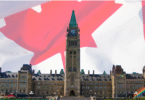The B1/B2 visa is a short-term U.S. visa for people who want to visit but not stay permanently. There are two types: the B1 visa is for business trips, and the B2 visa is for tourism, family visits, or medical care. To get this visa, you must show that you have strong reasons to return home, enough money for your trip, and a clear reason for visiting.
An invitation letter is not required to get a B1/B2 visa, but it can make your application stronger. It explains why you are visiting and shows that you plan to return home. If a trusted person writes the letter, it can help the visa officer better understand your travel plans.
This article explains the different types and formats of invitation letters that are accepted for U.S. visit visa applications in 2025.
Is an Invitation Letter Mandatory for a US Visit Visa?
The U.S. Department of State clearly says that an invitation letter is not required for a B1/B2 visa. Whether you get the visa depends on your personal situation. This includes your financial stability, job, family connections, and a strong reason to return home after your trip.
During visa interviews, consular officers check if the applicant is trustworthy and if their travel plans make sense. An invitation letter isn’t required, but it can help support the applicant’s story. A clear and well-written letter can explain the reason for the visit, who the host is, and what plans have been made for the stay.
Accepted Types of Invitation Letters
When applying for a U.S. B1/B2 visit visa, the invitation letter should match the reason for your trip. It’s not required, but a clear and well-prepared letter can make your application stronger by providing helpful details. Here are the three most commonly accepted types of invitation letters in 2025.
Family or Friend Visit Invitation Letter
This letter supports B2 visa applications from individuals visiting family members or friends in the United States.
- Clearly state how the host is connected to the visitor (e.g., sibling, cousin, close friend).
- Specify intended dates of arrival and departure, as well as the reason for the visit (e.g., vacation, holiday gathering, family event).
- Include full name, residential address, phone number, and legal immigration status.
- Indicate whether the host will cover accommodation, travel, or daily expenses, and include relevant declarations.
Business Invitation Letter (B1 Visa)
This letter applies to business travelers invited to attend meetings, conferences, trade shows, or negotiations in the United States.
- The letter must appear on official stationery and include the organization’s address, phone number, and email.
- Provide a brief description of the meeting or event, including the agenda and relevance to the applicant’s role.
- Outline the period of the visit and clearly state who will bear the costs—either the inviting company or the visitor.
Event or Educational Invitation Letter
This letter is used for academic, cultural, or professional visits, such as university symposiums, artistic showcases, or skill-based workshops.
- Identify the person or organization extending the invitation and their official capacity.
- Include the event name, dates, venue, and overall theme or objective.
- Attach formal verification, such as a university seal or official signature, to enhance credibility.
Recommended Format of an Invitation Letter
A clear and well-organized invitation letter can help show that the visitor’s travel purpose is genuine and support their U.S. B1/B2 visa application. Even though it’s not a legal requirement, using a simple and professional format makes the letter more trustworthy. Below is the suggested structure for a strong invitation letter in 2025.
Host’s Information
Begin the letter by providing full details about the person or organization extending the invitation. This information confirms the host’s identity and legal standing in the United States.
Include:
- Full legal name
- Residential address in the United States
- Active phone number and email
- Immigration status (e.g., US citizen, lawful permanent resident, visa holder)
Visitor’s Information
Identify the individual being invited to the United States. These details must match those in the visitor’s passport and visa application.
Include:
- Full legal name
- Date of birth
- Home address
- Passport number and issuing country
Travel Details
Outline the specifics of the planned visit. This section helps establish the temporary nature of the trip and clarifies logistical arrangements.
Include:
- Purpose of the visit (e.g., family reunion, business meeting, academic conference)
- Planned dates of arrival and departure
- Lodging information (address where the visitor will stay)
- Financial responsibility (who will cover travel, accommodation, and daily expenses)
Declaration and Signature
Conclude the letter with a clear statement of the host’s intent and willingness to accommodate the visitor. This section should express the host’s understanding of their role in supporting the application.
Include:
- A declaration confirming the accuracy of the information provided
- A statement of liability, if the host assumes financial responsibility
- The host’s full name and signature (digital or physical, depending on the method of submission)
- Date of the letter
Frequently Asked Questions
Who can write an invitation letter for a US visit visa?
Any legal resident, US citizen, green card holder, or temporary visa holder in lawful status can write an invitation letter, provided they have a valid reason for inviting the visitor and can support the stated claims.
Does an invitation letter guarantee visa approval?
No. An invitation letter does not guarantee visa approval. Visa decisions are based on a range of factors, including the applicant’s ties to their home country, financial stability, travel history, and intent to return.
Should the invitation letter be notarized?
Notarization is not required by US embassies or consulates. However, it may be helpful in certain cases to strengthen the authenticity of the letter, particularly when the host accepts financial responsibility.
Can I submit a scanned or digital copy of the invitation letter?
Yes. A scanned or emailed copy is generally acceptable and can be printed for submission during the visa interview. The letter does not need to be an original hard copy unless specified by the local embassy.
How recent should the invitation letter be?
The invitation letter should be issued close to the visa interview date, ideally within one to two months before ensure the travel information is current and relevant.
Conclusion
Invitation letters can be a helpful part of the B1/B2 visa application process. They are not required, but they give extra details about why you are visiting and show your connection to people, events, or organizations in the U.S. However, visa officers mainly focus on your overall situation, like your finances, your plans to return home, and your ties to your country. The invitation letter simply adds support; it is not the main factor in the decision.






